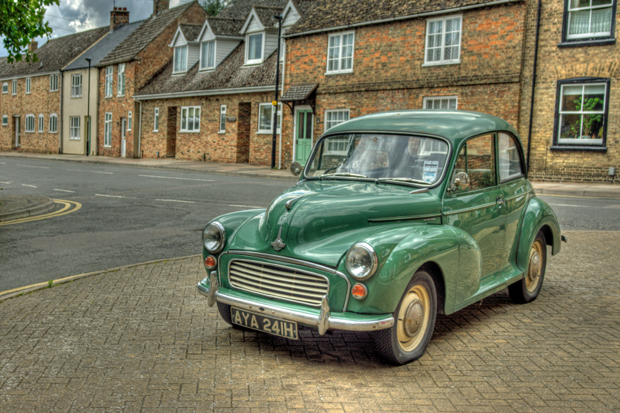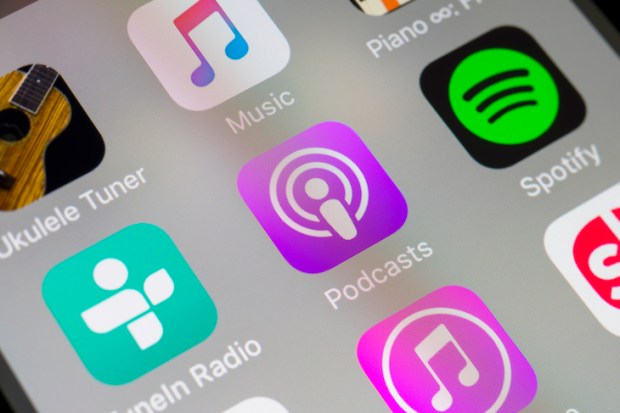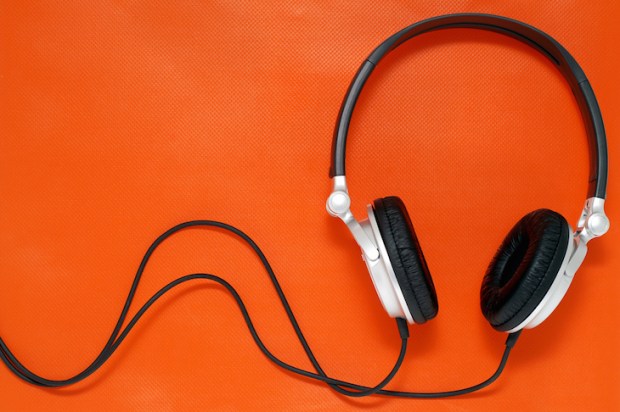My resolution this New Year is to get to grips with podcasts, to brace up and embrace this new aural wonderland stuffed full of sound stories, experiments, features, adventures. They’ve been around for a decade, and there’s now hundreds of thousands of them, lurking in the web, hoping for someone to stream or download them. But where to start? What will be worth listening to, and not a waste of time, or just a bore, or even worse nightmare-inducing (there’s nothing like stories told on radio for creeping insidiously into the mind)? How do you find just what you want to listen to amid this babel?
The easiest place to begin is the BBC’s own podcast site, Seriously… which gathers together its own selection of BBC programmes in specific categories. Delve further inside and you will find the podcast archive, which has specially curated collections of programmes, chosen by radio experts like Piers Plowright, whose most recent documentary for Radio 4 was Stepping Stones in which he revisited sounds that meant something to him (such as the petrol-fumed burr of a Morris Minor or sploshing through pondweed-filled water), each episode a haunting, magical classic of its kind. But my mission is to venture deeper into the outer regions of this new audio world.
There’s a lot of rough stuff out there, edgy voices, scratchy sound, awkward pauses, and what might sound intriguing is often really disappointing. RISK!, for instance, a collection of podcasts that claims to tell ‘true tales, boldly told’, had the appearance of something worth spending time with but before I’d had a chance to get hooked we were given an advert for an American website selling stamps online (American podcasts dominate the market, feeding off the long history of American radio as a storytelling medium but with no corporation to match the BBC’s range of schedules). Meanwhile at Snap Judgement — ‘dramatic tales, killer beats and the edgiest new talent in storytelling’ — I gave up after a few minutes, put off by an advert for ice-cold beer.
Limetown, though, which features in the top 100 of popular podcasts, had the same compelling, immersive effect as Serial, the investigative series that went viral last autumn alerting the world to the story of Adnan Syed who was imprisoned in the USA for the murder of Hae Min Lee. Limetown is told episode by episode and as if it were a documentary but in fact it’s a creepy story made up by two guys, Zack Ackers and Skip Bronkie, who met while at film school in New York.
They gave up on film and realised they could tell stories cheaply and effectively on radio but using filmic techniques. The team behind the podcast (which sounds like a cross between Twin Peaks and The Midwich Cuckoos) includes casting director, music director, sound designer, editor, and the end result is as slick as anything you would find on the BBC as Lia Haddock tries to find out what happened to the 300 inhabitants of a small town in Tennessee.
At Radiolab, ‘a show about curiosity’, I just clicked on their latest podcast which was intriguingly called ‘The Cold War’. This it turned out was not a history lesson about the Cuban Missile Crisis but instead took us straight to Oregon and inside Dennis’s story. As he told us, he had given up his lucrative job in real estate and set up his own ice-cream business after buying a lollipop for his daughter from a van that was so depressingly downbeat and dirty he was appalled. What had happened to the sweet tastes of his youth, that innocent, candy-pink world? Meanwhile Efrain, who arrived in the USA after crossing the Mexican desert on foot, had also bought a van and $500 worth of ice cream and was planning to take his van on to the same streets as Dennis. An advert break interrupted the storytelling just as Dennis was becoming obsessed with finding a way to stop Efrain invading his territory, but I kept on listening because there was something so engaging about Dennis, and Efrain too, as they battled it out, cones and jingles at the ready.
The slickest production, though, was back on Radio 4 as Helen Zaltzman, the network’s resident podcaster, introduced stories taken from ‘storytelling nights’ held across the UK and later released on the web as podcasts. On Truth Be Told (now available on iPlayer) we heard Jane talking about giving birth to her third child via Caesarean with only an epidural to numb the pain. A sheet was put up above her abdomen to shield her from seeing what was happening but she soon realised there was a monitor beside her head which she could watch. She decided to keep on looking in spite of how this might make her feel, as the knife slit through the skin peeling open her abdomen. At one point the surgeon held up her bladder and she watched him stroking it gently with his thumb. ‘It was one of the most intimate experiences of my life,’ she told us, her voice edged with wonder.
Got something to add? Join the discussion and comment below.
Get 10 issues for just $10
Subscribe to The Spectator Australia today for the next 10 magazine issues, plus full online access, for just $10.
You might disagree with half of it, but you’ll enjoy reading all of it. Try your first month for free, then just $2 a week for the remainder of your first year.














Comments
Don't miss out
Join the conversation with other Spectator Australia readers. Subscribe to leave a comment.
SUBSCRIBEAlready a subscriber? Log in